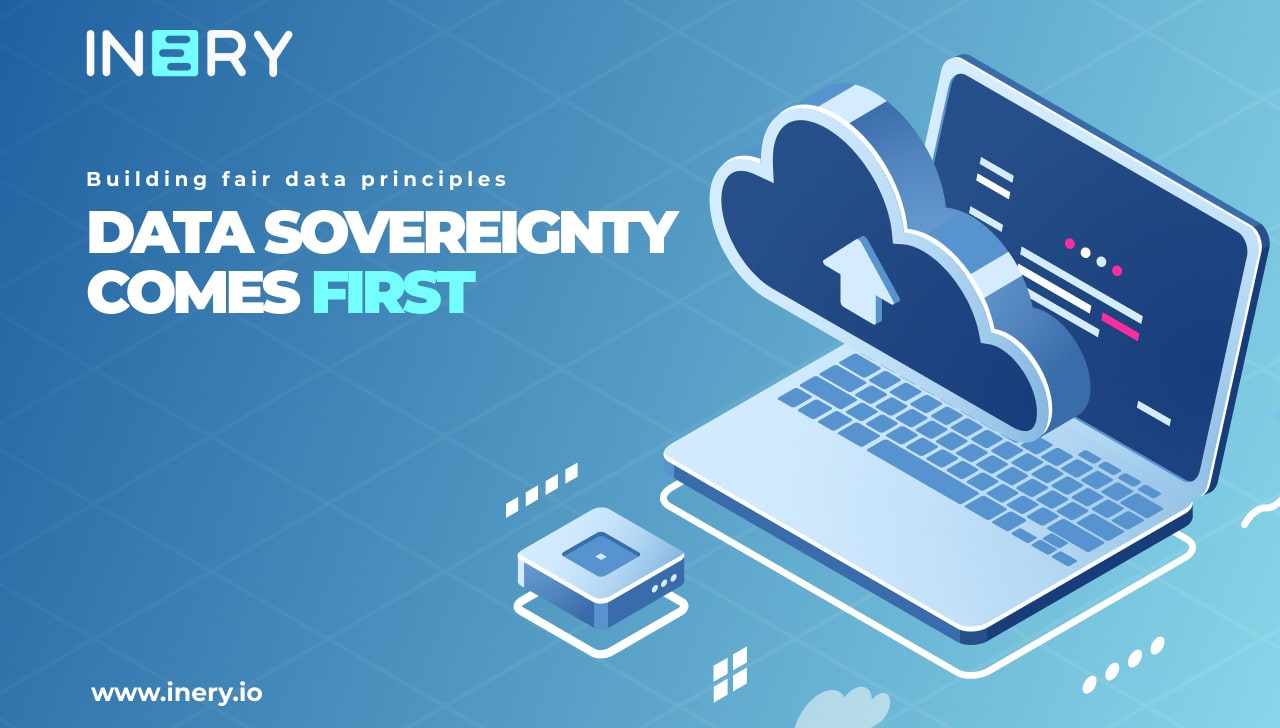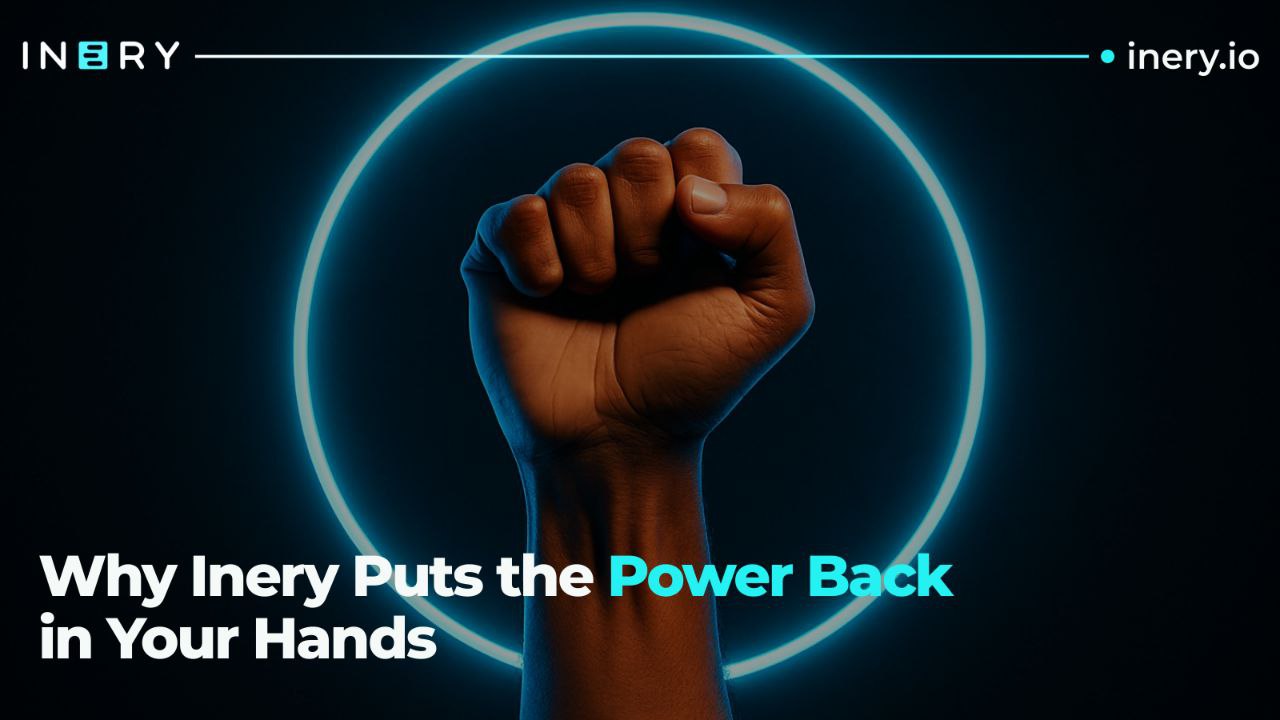TL;DR
- Albeit data sharing helped build the modern world, there is now a dire need for data sovereignty and autonomy.
- Web 3.0 has emerged as a foundational entity to drive this change.
- Inery is furthering this transition by building a scalable and omni-purpose data management blockchain infrastructure.
Introduction
This is no longer a world of sticks and stones. We, humans, make connections and strive to build relationships (professional and personal) in a borderless manner.
While this strengthens our resolve as a species, it also exposes us to new risks. We now live in an age where our data is constantly under threat from corporations and governments that are looking to exploit it for their own gain.
“Information is the oil of the 21st century, and analytics is the combustion engine.”
— Peter Sondergaard | Senior Vice President and Global Head of Research at Gartner, Inc.
For example, Facebook owns the data of its users and can use it in any way it sees fit. This creates a major problem for data sovereignty, as it means that users cannot be sure that their data will be used in a way that is beneficial to them.
Data sovereignty is the concept that individuals should have full control over their data. As an advocate of this concept, Inery is aiming to create a new, fair digital space where information will be used for social good, and its value will be distributed in alignment with web 3.0 and FAIR Data Principles.
In order to achieve true data sovereignty, it is essential to have data interoperability. This means that individuals should be able to easily move their data from one platform to another without losing any of its value or utility.
Autonomy and Sovereignty with Web 3.0
The goal of data sovereignty is to give individuals full control over their data. However, this cannot be achieved without the development of a new infrastructure that supports decentralized data interoperability.
Interoperability has always been a bottleneck for layer-1 blockchain solutions. The current infrastructure is not built in a way that allows for easy data exchange between different platforms. This makes it very difficult for individuals to move their data around, as they would have to give up all the value and utility that is associated with it.
While blockchain bridges are one of the solutions, they are not ideal as they are susceptible to attacks and breaches. For instance, a Harmony bridge’s vulnerability was exploited by hackers where over $100 million worth of cryptocurrency was stolen.
In order to achieve true data sovereignty, we need to build an infrastructure that supports decentralized data interoperability without setbacks. A solution that is secure and decentralized from the get-go and built around the principles of security and autonomy.
Hence, a layer-1 blockchain for data management is the next frontier for data storage, asset interoperability, and privacy.
Inery allows enterprises and startups to decentralize their existing infrastructure without having to completely strip off their old ones for a new one. Inery’s solutions can be deployed atop existing infrastructure, adding an extra layer of security and sovereignty.
“The whole web 3.0 part is based on one thing that the user of the internet actually owns his part of the internet, not the big tech giants which are constantly taking our data.”
— Dr Naveen Singh | Founder and CEO at Inery Blockchain
This not only saves enterprises and startups time and money but also allows them to keep their data under their control while still being able to take advantage of the benefits of decentralization.
From an end user’s standpoint, Inery’s solutions put them in full control of their data. They can easily move their data from one platform to another without losing any of its value or utility.
DIDs: A Key Aspect of Furthering Data Sovereignty
Currently, most online platforms and services require users to sign up with their personal information. This gives these platforms complete control over the user’s data, as they can decide how to use it and share it with third parties.
With web 3.0, users will be able to sign up and log in to platforms and services using their DID (decentralized identifier). This will give them full control over their data, as they will be the only ones who can decide how to use it and share it.
In addition, DIDs will also allow for the development of new applications that are built around the principle of data sovereignty. For instance, a social media platform that allows users to share their data with only the people they trust
Inery’s goal is to build a new, improved internet that is powered by individuals instead of corporations. A digital space where data is used for social good and its value is distributed in a fair and equitable manner.
This is only possible if we put data sovereignty first.
Website | Twitter | Telegram | Telegram Ann | LinkedIn | Discord | Reddit | Instagram

Inery•
2 years ago
Are Crypto Regulations Ruinning Web3 Projects and Businesses?
As the crypto industry grapples with the regulatory surge, the destiny of Web3 projects hinges on finding harmony between innovation and regulation, shaping the decentralized ecosystem's future. ...READ MORE
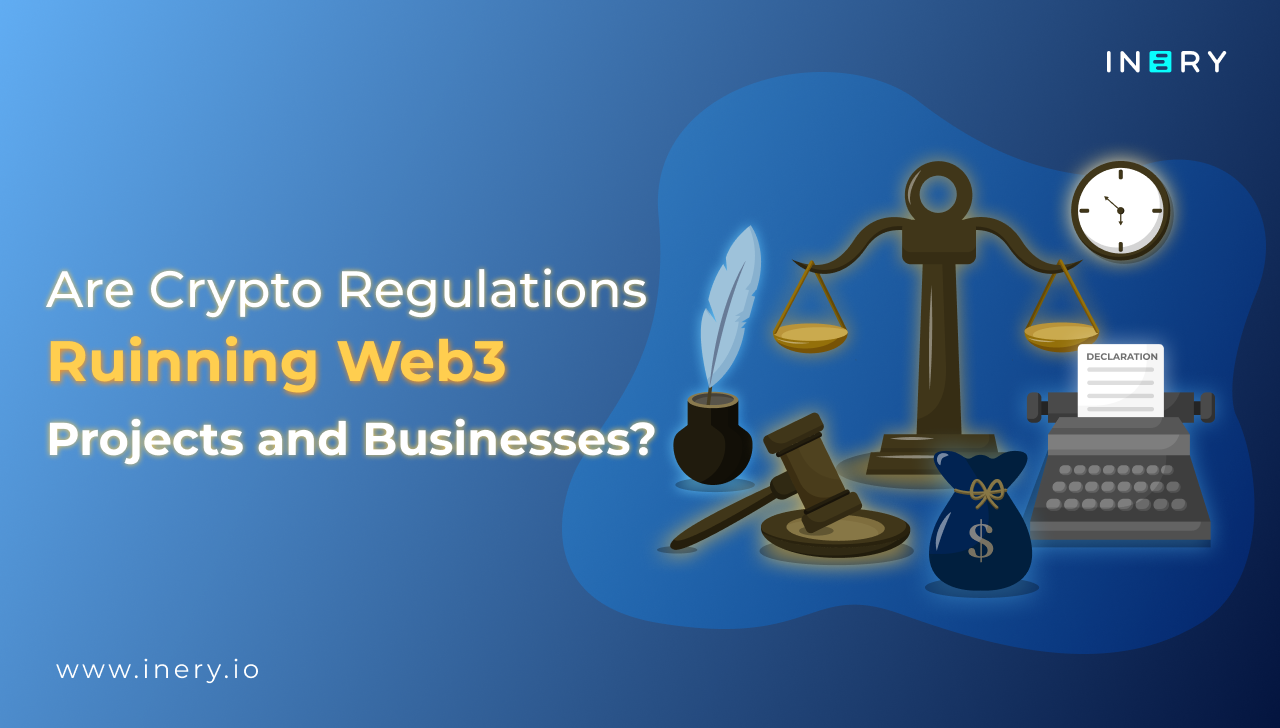
Share

Inery•
6 months ago
How DLT Can Help Manage Global Crisis Data: From Pandemics to Climate Change
From floods to outbreaks, data can save lives. Learn how DLT helps governments and agencies handle high-stakes scenarios with more clarity and trust. ...READ MORE
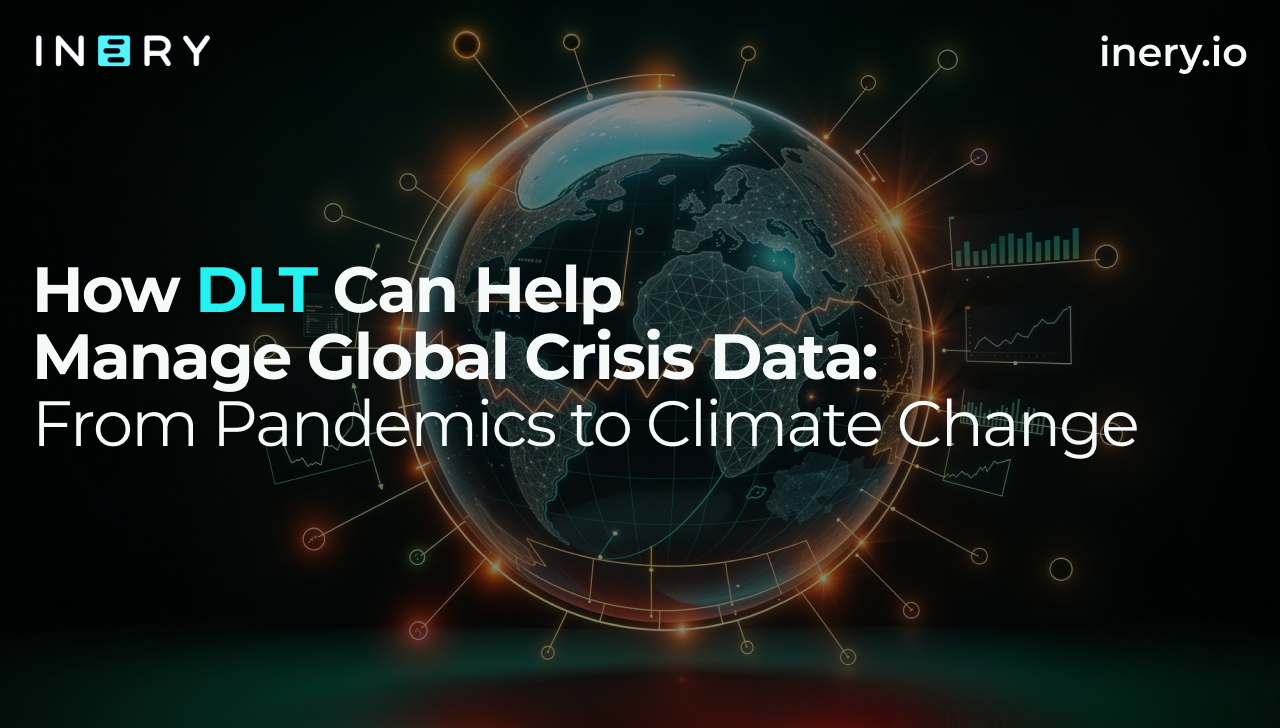
Share

Inery•
2 years ago
Database Security Practices
Discover the significance of database security in safeguarding sensitive information and learn how Inery can enhance your data protection strategies ...READ MORE
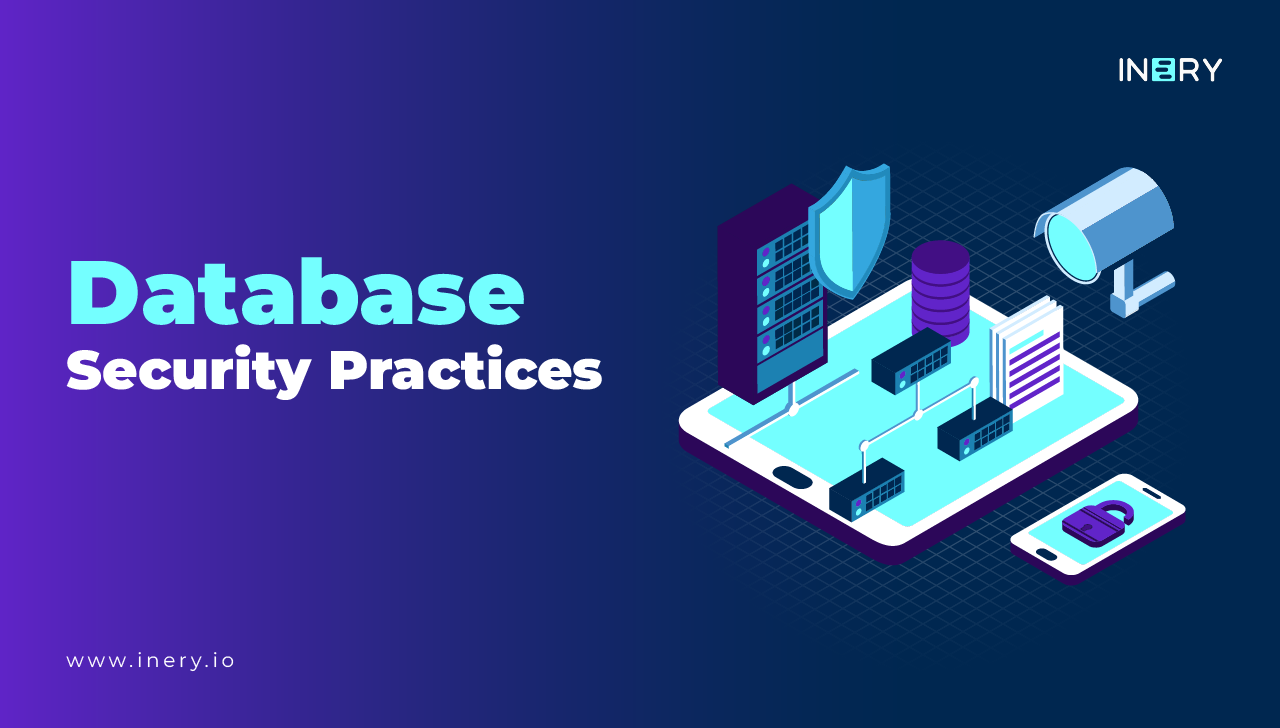
Share

Inery•
3 years ago
Introducing the Inery Ecosystem
Join us as we activate a new paradigm for database management ...READ MORE
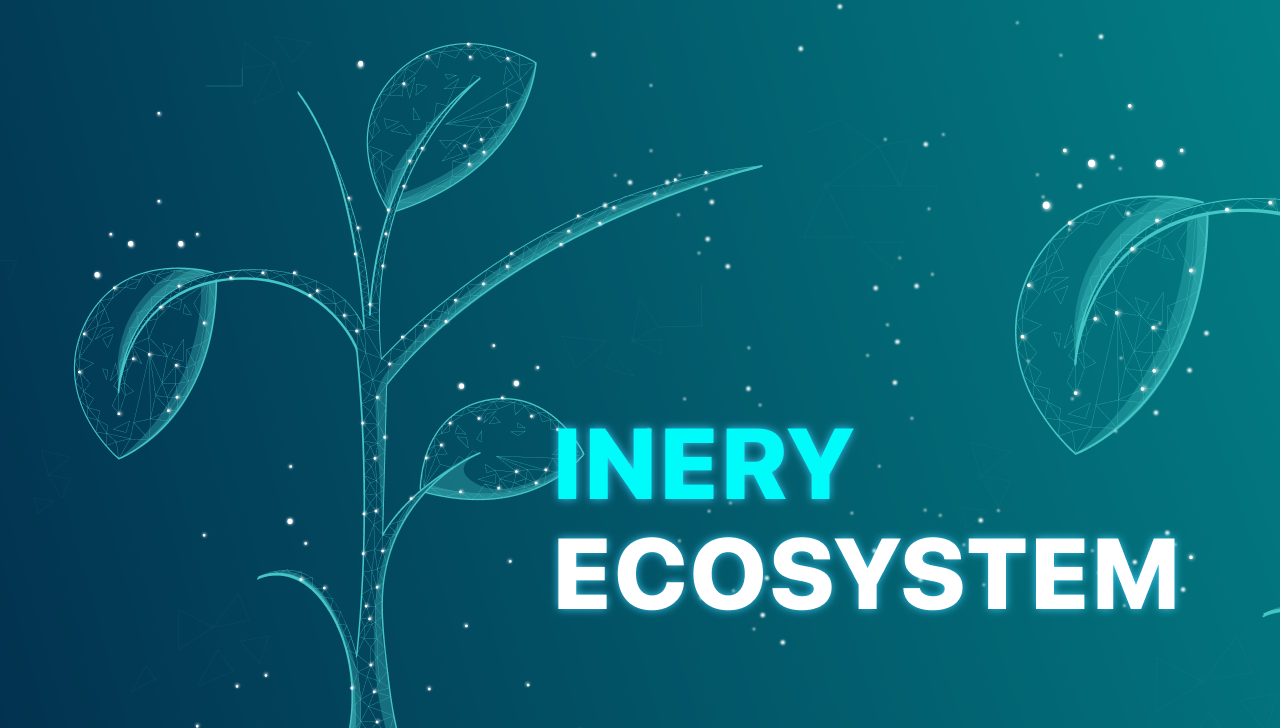
Share
Most popular today

